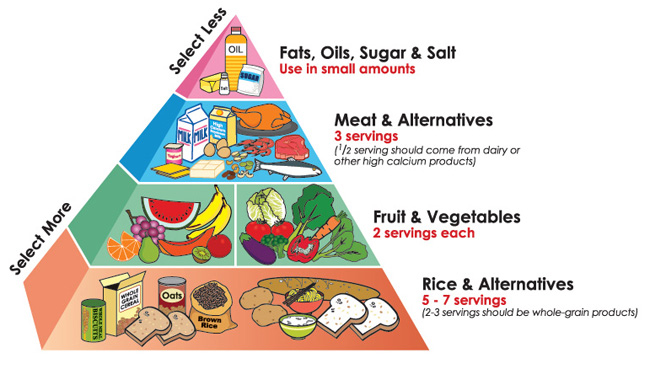
Nutrition plays an extremely important role in determining one's resistance or susceptibility to dental cavities and gum problems. The following is just an indicative information. Foods that may act to increase or decrease the risk for dental caries (tooth decay).
| Increases Risk* | Decreases Risk** |
| Sugar - sweetened beverages (soda [colas], energy drinks, processed fruit juice). | Sugar - free food items. |
| Sticky foods (candy, caramel, syrup, chikki, eclairs). | Fruits and vegetables (have also been shown to reduce the risk for oropharyngeal cancer). |
| Snacks with sugar (cookies, biscuits, cakes, pastries). | Foods rich in protein such as lean meats, eggs, fish, beans, and legumes. |
| Simple sugars such as honey, sucrose, and molasses. | Whole - grains, specifically breads and cereals low in sugar. |
| *The length of time that these foods are consumed is also a factor in the risk for tooth decay, as consuming these foods for an extended period of time acts to increase the risk for decay. ** These foods and beverages should be consumed at least 2 hours apart, ideally in an unprocessed form. |
|
Facts About Carbohydrates and Bacteria
- Sucrose (table sugar) is the primary carbohydrate that bacteria prefer. However, other simple carbohydrates such as fructose, lactose, and glucose, are easy to ferment and also support bacteria growth.
- Simple sugars are found in many foods and may also be known as: table sugar, corn syrup, honey, molasses, and dextrose.
- Bacteria also can ferment complex carbohydrates (such as starches), but the process takes longer. Many complex carbohydrates are sticky and become lodged between teeth and gums which allows the bacteria time to ferment the carbohydrate.
- Although fresh fruits and vegetables do contain carbohydrates that can be fermented by bacteria, their high water content acts to dilute the sugars, and fiber content helps clean the teeth, thereby protecting against tooth decay.
